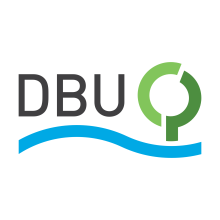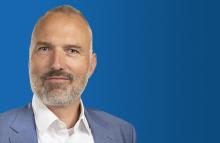TU Bergakademie Freiberg presents pioneering project at the Week of the Environment
Data Mining Lab Freiberg is the name of the project with which the university and its project partners are travelling to Berlin's Bellevue Palace Park. The Week of the Environment from 4 to 5 June 2024 is under the patronage of the German Federal Environmental Foundation (DBU) and Federal President Frank-Walter Steinmeier and is regarded as a showcase for innovative, exemplary and solution-oriented ideas on current environmental issues. The Data Mining Lab Freiberg is a database that is fed by the research results of numerous partners. This is true big data - very large amounts of data that are made usable with the help of artificial intelligence (AI) - for science and the recycling industry.
Professor Urs Peuker from the Institute of Mechanical Process Engineering and Mineral Processing at TU Bergakademie Freiberg heads the Data Mining Lab Freiberg. He explains why the battery recycling of the future needs big data: "50 years ago, a car consisted of perhaps ten different elements that we recycled. Today, we have a large number of other chemical elements in the electric motors with the corresponding batteries alone. And the structures are also becoming finer, with materials the thickness of a hair or smaller. Recycling has become complex. The classic tools are reaching their limits." This is where the Freiberg database comes into play. It initially collects the data from the various project partners, which can be laboratory analyses or process data from recycling plants, pure text files as well as image material. The AI takes over the merging and analysis of this very different raw data, i.e. the "hard work", as Urs Peuker calls it.
"At the moment, we are still in the data collection phase," says Peuker, "next year at the latest, we want to set up corresponding research topics so that we can also utilise this data mining at TU Freiberg." Professor Peuker does not just have science in mind: "We are aiming to create added value for economic development in Saxony, Germany and Europe." It is not just about environmental protection, but also about economic and strategic interests: "There are raw materials in the batteries that are not available in Europe. Primary raw materials may be more difficult to obtain in the coming years if global trade becomes increasingly political. Recycling is an important approach here. At the TU Bergakademie Freiberg, we originally come from the mining industry. Now we are doing a different kind of mining, the extraction and use of relevant data sets."
"The work of the Data Mining Lab is an excellent example of Freiberg as a science location," emphasises Professor Klaus-Dieter Barbknecht, Rector of TU Bergakademie. "This is top-level research in Central Saxony." Which, incidentally, works with numerous partner institutions on site and in Saxony: In addition to the Institute of Mechanical Process Engineering, the Institute of Technical Chemistry and the Institute of Applied Physics at TU Bergakademie Freiberg, the Helmholtz Institute Freiberg for Resource Technology, the Fraunhofer Institute for Ceramic Technologies and Systems and the Fraunhofer Institute for Integrated Systems and Device Technology are working on the further development of the Data Mining Lab Freiberg.


